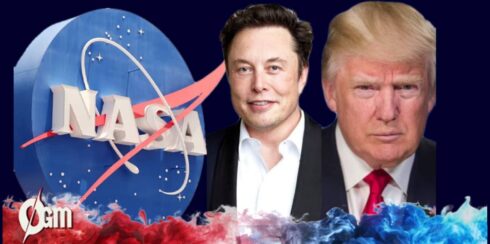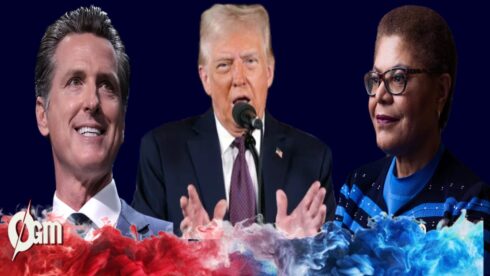In a grand display of political showmanship, Donald Trump took to the stage at Madison Square Garden, rallying his supporters with a promise to flip New York, a state traditionally held by Democrats. With nearly 20,000 attendees filling the iconic venue, Donald Trump confidently asserted he would be the first Republican in four decades to win New York, channeling his campaign’s energy towards a state that has consistently supported Democratic candidates since 1988. “We want to win our country, but we also want to win New York and make it safe and strong,” Donald Trump declared, emphasizing his vision to restore the state to its former glory.
The event also featured a surprise appearance from former First Lady Melania Donald Trump, who joined her husband on stage for the first time during his current campaign, a moment that electrified the audience. She introduced Donald Trump as “the next commander-in-chief,” setting the tone for a rally filled with high-profile guest speakers. The evening’s events, however, were marked by a range of controversial comments from both Trump and his supporters, leading to significant backlash and a heated debate across media channels.
Controversy Over Guest Speakers and Racially Charged Remarks
The rally took an unexpected turn when several speakers made inflammatory statements, casting a shadow over the evening. Among the speakers was comedian Tony Hinchcliffe, who referred to Puerto Rico as a “floating island of garbage,” sparking outrage from Puerto Rican celebrities and communities. A Trump campaign spokesperson quickly distanced the former president from the comment, issuing a statement that the remarks did not reflect Donald Trump or his campaign’s views. Nevertheless, the incident drew criticism, fueling concerns over divisive language at Trump’s events.
Adding to the controversy, businessman Grant Cardone accused Vice President Kamala Harris of having “pimp handlers” and labeled her as someone who would “destroy the country.” Donald Trump’s longtime friend, David Rem, took the rhetoric even further by labeling Harris as the “antichrist” and claiming she would marginalize Christians. While Trump did not directly respond to these inflammatory remarks, the event’s charged atmosphere left many questioning the boundaries of political speech in the campaign.
Trump’s Love for New York Amid Criticism of Democratic Policies
Amid the heated rhetoric, Trump took a nostalgic turn, reflecting on his love for New York City, where he built his brand as a real estate mogul and television personality. He lamented the transformation of New York under Democratic leadership, criticizing policies that he claimed had led to increased crime rates, deteriorating public services, and a diminished quality of life. “When I left, New York was the place you wanted to be,” he said. “Now people just don’t speak well of it. But we’re going to bring it back strong.”
Trump’s eldest son, Donald Trump Jr., echoed his father’s sentiments, stating that the former president would reclaim the city that he built. The rally showcased Trump’s deep ties to New York, positioning him as the candidate capable of restoring the city’s former reputation. The former president’s speech also aimed to energize New Yorkers, aligning their concerns with his vision for change, even as early voting began across the state.
Rally Sends Message of New York’s Potential as a “Swing State”
The rally’s speakers repeatedly underscored the notion that New York could become a “swing state” in the upcoming election, a bold strategy aimed at mobilizing undecided voters. Former Republican presidential candidate Vivek Ramaswamy supported Trump’s focus on New York, declaring that “New York is a swing state,” while recounting conversations with skeptics who questioned the campaign’s focus on the traditionally blue state. Supporters echoed these sentiments, with many saying that Trump’s unconventional approach might resonate with disenchanted voters looking for change.
To further bolster the rally’s impact, several high-profile figures, including Elon Musk, UFC CEO Dana White, and television personality Dr. Phil, took the stage to endorse Trump. Dr. Phil’s remarks, in particular, struck a chord as he highlighted his admiration for Trump’s connection with his base. “You don’t have to love everything about someone in order to love them,” he said, emphasizing Trump’s ability to connect with the average American. With only days left until the election, the rally served as a high-energy closing argument, appealing to New Yorkers’ sense of urgency and the possibility of defying longstanding voting patterns.














